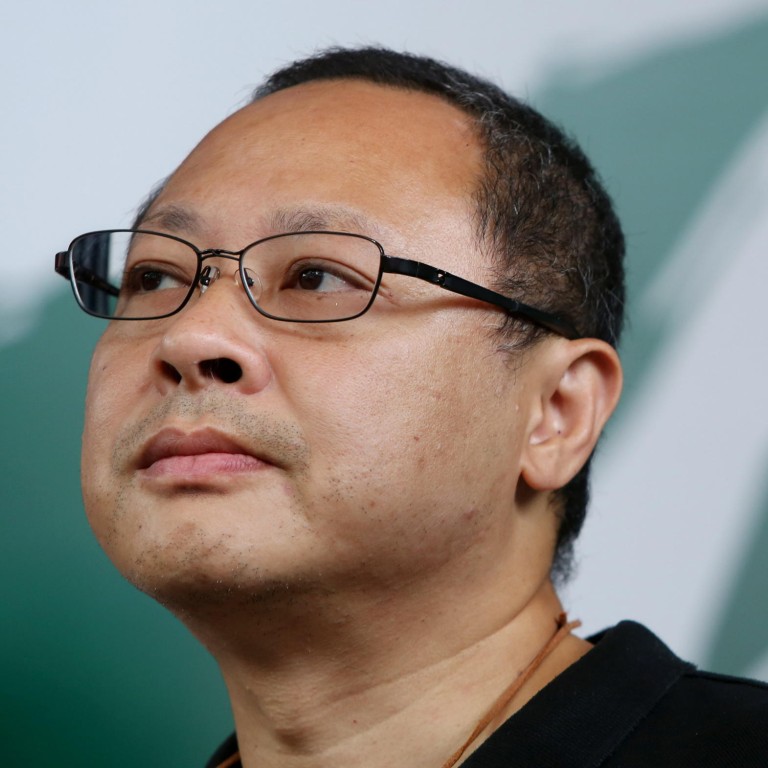
Dissolving Legco if reform bill vetoed could solve impasse, Occupy co-founder says
Benny Tai says if chief executive triggered an election, it would be a de facto referendum on political development; Jasper Tsang sceptical
Chief Executive Leung Chun-ying should invoke his power to dissolve the Legislative Council if electoral reforms he proposes are vetoed, an Occupy Central co-founder said yesterday.
Benny Tai Yiu-ting said this would help end the political impasse that had developed since Beijing set tight restrictions on the conduct of the 2017 chief executive election.
“It is in the design of the Basic Law that there is a procedure for citizens to decide on an important issue together,” Tai said.
He was referring to Article 50 of the mini-constitution, which allows for Legco’s dissolution if it votes down an “important bill”.
Meanwhile, protest leaders and pan-democrats have yet to reach agreement on a proposal that lawmakers resign to trigger by-elections they would see as a “de facto referendum” on electoral reform. A similar exercise was held in 2010, although it fell flat after Beijing loyalists opted against putting up candidates.
Pro-establishment figures, including Legco President Jasper Tsang Yok-sing, said neither option could help resolve the impasse as the Occupy Central protests entered their sixth week.
Under Article 50, the chief executive may dissolve Legco and call a new poll if the budget or “any other important bill” introduced by the government is voted down and “consensus still cannot be reached after consultations”. If the new Legco again votes down the bill, the chief executive must quit.
Tai said he felt setting a date for a “de facto referendum” – either through resignations or a new Legco poll – could end the street blockades, though he said protesters might feel otherwise.
But Tsang said a new election would not solve the problems.
“Even if pan-democrats could win a few more seats [after Legco is dissolved], can you jump to the conclusion that the majority of Hongkongers oppose Beijing’s decision on the political reform?” he asked.
Liberal lawmaker James Tien Pei-chun, who was last week axed from the nation’s top political advisory body for calling for Leung to consider resigning, said he believed Tai’s suggestion was unlikely to find favour with the chief executive.
The other question is whether the vote on political reform meets the definition of an “important bill”. As a constitutional change, it would require a two-thirds majority in the legislature – meaning pan-democrats would have enough votes to veto it. But in 2010, former constitutional affairs minister Stephen Lam Sui-lung argued that such a motion could not count as an “important bill” because such a term only applied to local legislation.
Meanwhile, Stanley Lau Chin-ho, chairman of the Federation of Hong Kong Industries, said retailers and hotels would be worst affected by the prolonged protests. He fears lay-offs or pay freezes will follow.
And the anti-Occupy Alliance for Peace and Democracy ends its petition drive today. By 9.30 last night the group said it had received 1.5 million signatures in support of its call to restore the rule of law and return society to normality.
